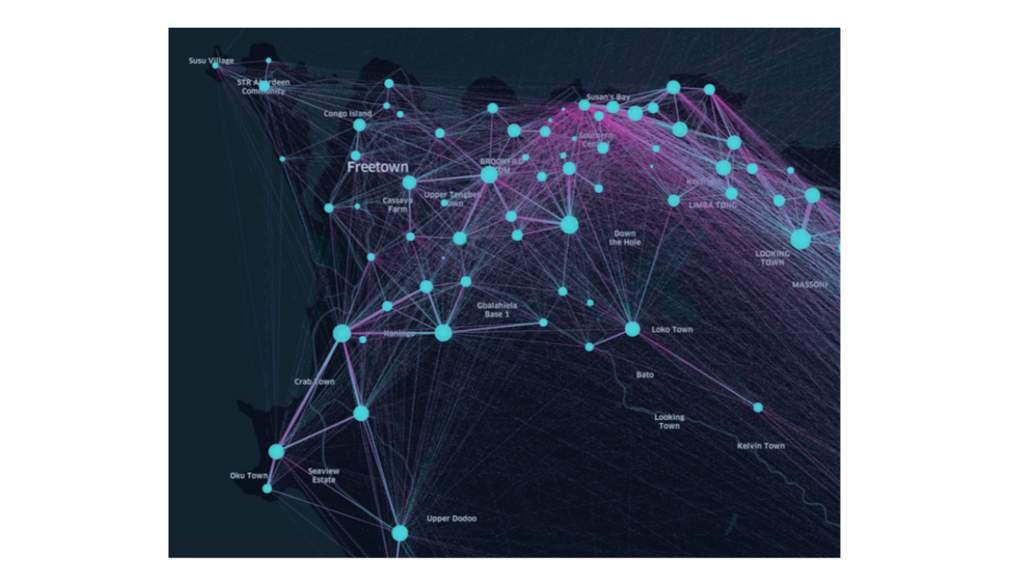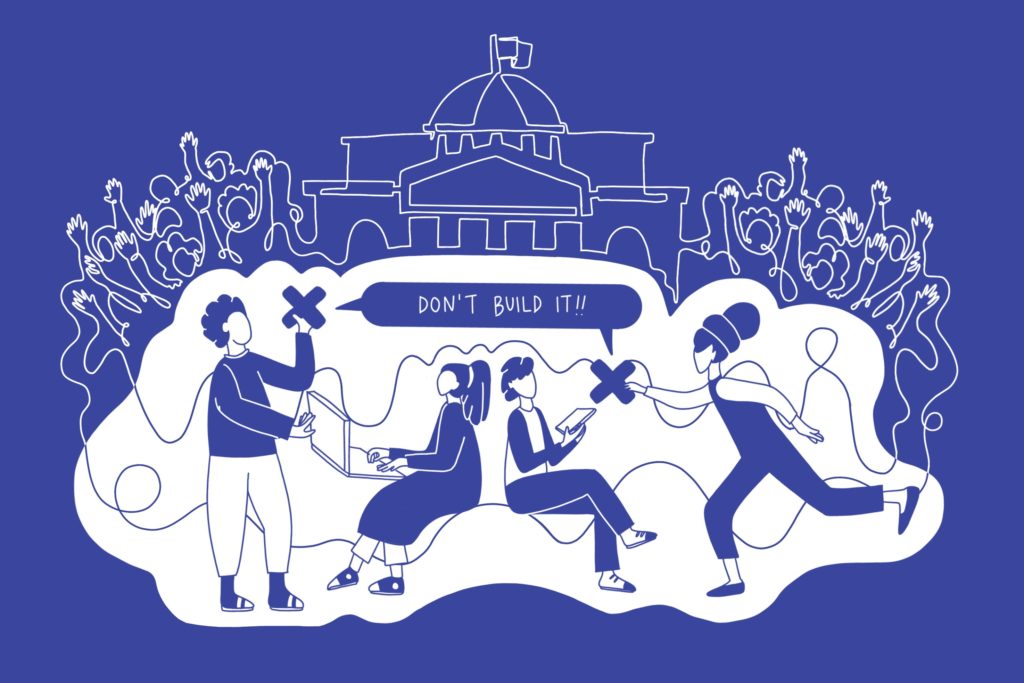Check out the online version and subscribe here to get the next digest.
Dear MIT GOV/LAB Community,
Recently, we’ve been studying something that’s been missing from our lives of late, but we’re just starting to get back — mobility. In partnership with MIT’s Civic Data Design Lab, we just published “Making the Most of Mobility Data (CDRs): A Guide for Policymakers” on how anonymized cell tower records can help understand how people travel during humanitarian crises.
The guide, written by research associate Innocent Ndubuisi-Obi Jr, shares lessons on when Call Detail Record (CDR) data is most useful, how to partner with in-country experts and mobile phone companies to contextualize data, and how to protect the privacy of the people whose data is being studied (check out a Q&A with Innocent about the guide).

The guide is informed by our experience using this type of data to help Sierra Leone’s government plan their response to the Covid-19 pandemic. We partnered with the government’s Directorate of Science, Technology and Innovation (DSTI), as well as Africell, a wireless service provider, to study whether people traveled less during lockdowns, particularly during a shorter, three-day lockdown. The data, including interactive charts for each district, showed that people moved around less both within and between districts during lockdowns, and that movement declined the most in wealthier areas with more people. The research was highlighted in MIT News.

A winning team from Sierra Leone’s National Public Procurement Authority. Photo courtesy of the vice president’s media team/Sierra Leone.
We also collaborated with DSTI on a two-week governance innovation boot camp for civil servants from six government departments in Sierra Leone. The boot camp taught strategies for identifying and understanding governance problems and finding creative, evidence-based solutions. The participants developed prototypes for solutions to problems they’d like to explore more deeply and presented proposals at a June pitch night highlighted by MIT News, during which $80,000 in seed funding was awarded across three winning teams. The pitch night’s judges included academics, an activist and journalist, and members of civil society organizations.
A winning team from the National Revenue Authority pitched a portal for paying taxes that would make governments more responsive to citizens needing support for and information on paying taxes. The Office of the Administrator and Registrar General’s winning proposal would digitize the country’s land registry records, reducing the number of land disputes and allowing people easier access to their records. The third winning team, from the National Public Procurement Authority, introduced a plan for a centralized procurement database that would allow them to publish more up-to-date reports and conduct more robust analysis, enabling them to provide other departments with better data to inform their procurement processes.
This project is part of our governance innovation initiative at MIT GOV/LAB, which aims to combine tools from social science and human-centered design to find ways to make governments more accountable and responsive to citizens.
__
Here’s some other highlights from our past few months:
We looked at how much people in Sierra Leone trusted different authorities during the pandemic. In partnership with the Institute for Governance Reform and government partners in Sierra Leone, we conducted national surveys in 2020 to inform a data-driven response to the pandemic. One question we wanted to answer was how much trust people had in the government, the Ministry of Health, and other authorities. We share new analysis on how much people trusted authorities, how levels of trust changed throughout the pandemic, and how levels of trust varied among subgroups of the population. Why? Our research in Liberia during the Ebola epidemic showed that in places where there’s more trust, people are more likely to comply with public health measures that save lives.

Facemasks, photo by Anton on Unsplash.
Have you read Luke Jordan’s civic tech guide “Don’t Build It”, yet? In our last digest, we shared the no-holds-barred guide on when and how to build civic tech from our (most practical) practitioner-in-residence. Since then, the guide has received great reviews from Tiago Peixoto on DemocracySpot, Koketso Moeti in the World Economic Forum blog and iAfrikan, and Lwazi Maseko for the Civic Tech Innovation Network; the guide also made the Stack Overflow Podcast.

Exploratory results on governance and informality during Covid-19. We have initial results from an exploratory survey to better understand how the pandemic is shaping relationships between governments and people living and working in informal settings.

San Marcos and La Purísima street markets in Aguascalientes, México (Belia Ponce).
Great new research from our spring 2021 research assistants. Christina Warren (MIT ‘21) shared findings analyzing the role gender plays in India’s legal system and unusually influential judges. Akwasi Owusu-Brempong (Brandeis ‘21) wrote about studying migration patterns and perceptions of ethnic favoritism in sub-Saharan Africa.
MIT News featured graduate research fellow Minh Trinh. The article highlighted Minh’s research into the misreporting of government statistics and its effect on accountability in Vietnam.
Image: Judging panel (left to right): Fredline M’Cormack-Hale, Iman Beoku-Betts, and Asmaa James. Photo courtesy of the vice president’s media team/Sierra Leone.
